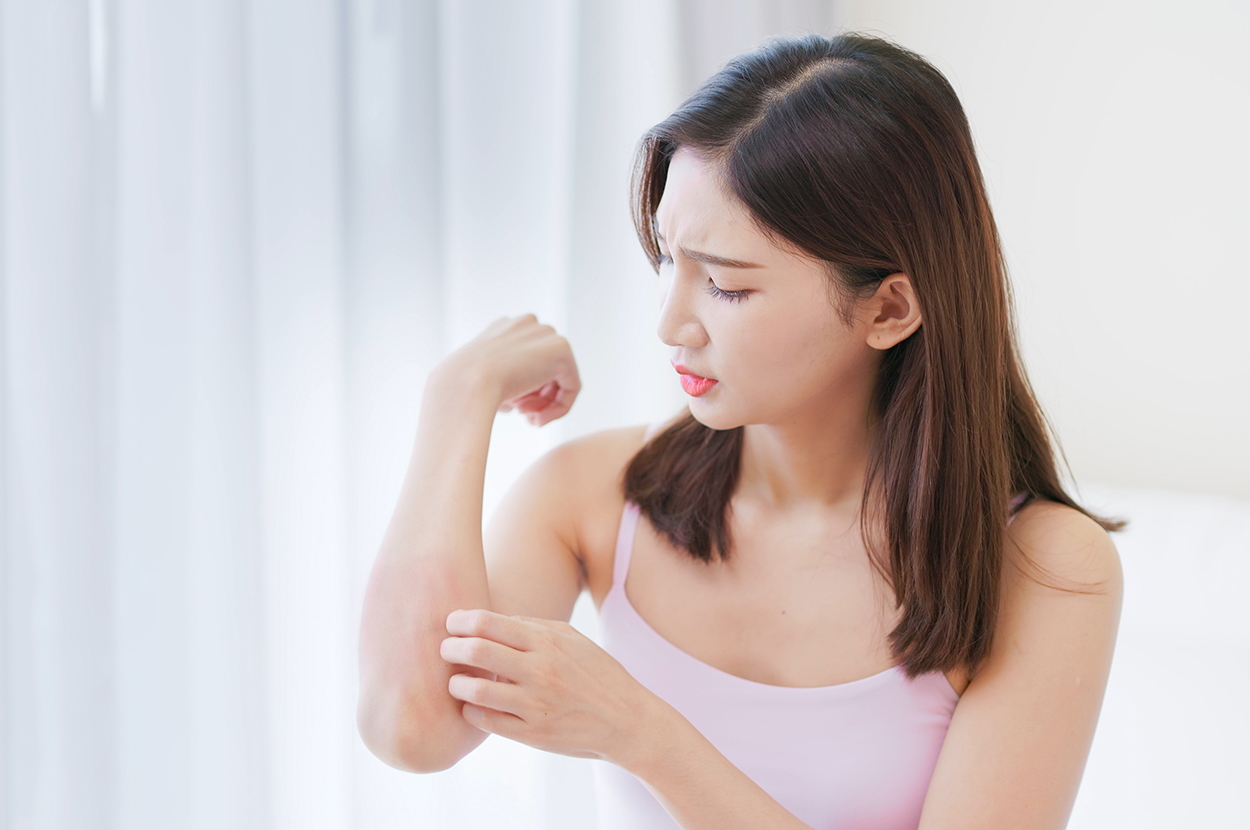Hives is the common name of the condition called urticaria. Hives are red to pink itchy raised welts found on the skin. They are sometimes flesh-colored and may sting or hurt. In many cases, hives are a temporary problem that can be resolved by taking allergy medications. Hives will frequently go away with no treatment. Chronic hives need treatment and may represent a medical concern. The swelling accompanied by the hives is called angioedema. About 20% of people get hives at least once in their lifetime.
Causes
Hives are usually caused by an allergic reaction. Mast cells release a protein called histamine when an allergic reaction occurs. The capillaries release fluid after the release of histamines. This fluid gets accumulated in the skin and causes the characteristic swelling of hives. This is not a contagious disease. Some foods such as peanuts or fish may trigger hives. Other triggers of hives include:
- Medications, such as antibiotics (especially penicillin and sulfa), aspirin, and ibuprofen
- Insect stings or bites
- Physical stimuli, such as pressure, cold, heat, exercise, or sun exposure
- Latex
- Blood transfusions
- Bacterial infections, including urinary tract infections and strep throat
- Viral infections, including the common cold, infectious mononucleosis, and hepatitis
- Pet dander
- Pollen
- Some plants
- Stress
In many cases, hives appear with no known cause.
Chronic hives are hives that last for more than six weeks. The cause for chronic urticaria may be difficult to determine as there are a wide range of causes for hives.
Symptoms
Hives can appear on any area of the body. They can move or even disappear. They may continue to last from minutes to even years on the body. The bumps on the body are usually red or skin colored. Pressing the center of a red hive makes it turn white, which is called blanching.
They can be extremely itchy and have a red flare around them. Sometimes hives sting and are painful. The wheals usually occur in batches on the face or the extremities.
Hives normally disappear within 24 hours, but new ones may form. Anaphylactic reactions may occur is the hives were caused by an allergic reaction.
The associated symptoms may include:
- Nausea and vomiting
- Swelling of the lining of the mouth, tongue, lips, and throat, causing breathing difficulty
- Cold and clammy skin
- Rapid heartbeat
- Faintness or lightheadedness
- An unexpectedly abrupt feeling of intense anxiety.
Diagnosis
Hives are diagnosed during a physical examination. A specific history is taken to identify the cause of hives. Further testing, if indicated, depends on the medical history and examination.
Sometimes skin tests and blood tests are required to check the cause for urticaria.
Treatment
Treatment for hives most often includes non-sedating antihistamines taken for several weeks. Patients with angioedema need to see an allergist.
Home remedies include avoiding potential triggers, limiting stress, and choosing mild soap, shampoos, and lotions.
Tips to reduce the irritation caused by hives include:
- Wearing loose, light clothing
- Avoiding scratching
- Use soaps for sensitive skin
- Use a shower, fan, cold water, or lotion to keep cool
- Take an oatmeal bath with tepid water
- Use ice or a cold compress.
Contact us
In case of urgent medical care assistance, AfterOurs Urgent Care offers immediate telemedicine services through telemedicine appointments, where medical providers are available to offer assistance. Anyone who experiences signs and symptoms requiring urgent medical attention can simply book their appointment with AfterOurs Urgent Care to directly talk to an expert. If your medical issue is not appropriate for telemedicine, we will let you know and refer you to an in-person facility.
When to visit a doctor:
If you experience swelling on the lining of the mouth, lips, or nose, then you should seek immediate medical assistance.
Treatment for hives is available at AfterOurs Urgent Care.
For more information regarding Hives, see the following website:

